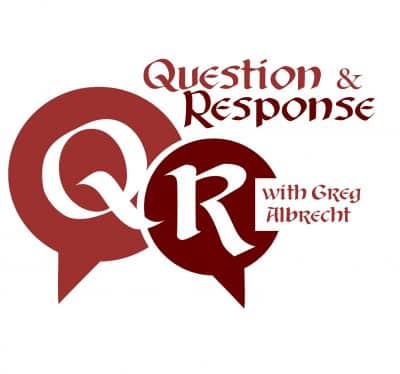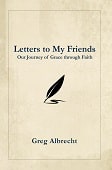“If God…?” – Brad Jersak

“If God…?”
I had a wonderful conversation about God.
I suppose that’s already an “iffy” thing to say these days. High risk in some circles and forbidden in polite company. But this exchange was truly special. My conversation partners self-identified across the map—agnostics, pagans, heretics and yes, even a few Christians. Each of us were welcome to express our evolving or devolving faith without any fear of judgment. I heard stories of faith found, abandoned, and adapted. And, however different our convictions, we all shared a humble agreement that who or what God is or is not defies our comprehension. “Ineffable” is a good term for the loss of words we felt.
Now, as a Jesus-follower, I have come to believe that God is Love and that Jesus uniquely showed us a God who bears the wounds of the world. That is, to say “God is love” includes the nail scars of divine empathy. But this conversation wasn’t the time. My contribution can be summarized as “If God…?” in four important registers:
1. “IF GOD…?” IN DEFIANCE
I have often heard “If God…” questions in angry tones. “If there is a God, then why…?” or “If God is good, then what about…?” or “If God loves me, then where was he when…?” Then we’re offered a story or scenario that seems to disprove the existence, goodness, or love of God. Some very real trauma, loss, hypocrisy, or betrayal is submitted as evidence that God is a sham (at best), incompetent, or downright evil. In this register, “If God…?” describes a deal-breaker against belief.
That brand of “If God…?” question does NOT demand some clever counterargument. We need to hear the suffering soul beneath the tormented defiance. Behind the grinding teeth is a lament, a vulnerable invitation to listen without flinching, reacting, or judging.
2. “IF GOD…?” IN DOUBT
We need to be equally tender with those “If God…?” questions that verbalize doubt. Much ink has been spilled either condemning the dangers or affirming the value of doubt. My take is that whatever doubts someone is having, it takes a lot of courage to name them out loud—especially because people of faith have a terrible track record of “solving” doubt by shutting it down or arguing it away. Well, aside from being rude, those tactics tend to confirm doubt more often than resolve it. Why? Because doubt can’t be silenced. It just retreats and radicalizes.
What if we were to make room for doubt to speak up? What are we afraid of? Maybe we’re worried that doubt is infectious. I guess it can be… but if letting someone struggle out loud is so dangerous, maybe our faith is too fragile to be real. The apostle Peter said, “Have an answer ready for why you have hope,” not “Have an argument ready for everyone else’s doubts.” How about we just listen better?
3. “IF GOD…?” IN OPENNESS
I’m happy to say the conversation I’ve described also included a lot of “If God…?” openness. “If there is a God, then maybe…” “If God” in this way doesn’t need theological definition. It’s more about an openness that prays, “If there’s a God out there, would you help me? Would you change me? Would you meet me where I’m at? Would you become real to me?”
Many in that group have not come to any conclusions about who or what God might be—they may still get triggered by “God talk”—yet in praying “as if” God could be listening, they testify to an experience of growth toward freedom in the act of surrender itself, so they’re sticking with it.
4. “IF GOD?” IN FAITH
Some among us have embraced an “If God…” kind of faith. The IF there isn’t so much about wavering or tentative faith. It’s just that we’ve lost the need to “prove God” to ourselves or others. Whoever or whatever God is, we’ve found that knowing God intimately isn’t contingent on courtroom apologetics, scientific evidence, or any kind of proof. I know God in sort of the same way I know my wife loves me—and in that case, it’s a relationship that doesn’t even rely on my unstable feelings.
Now, that type of faith isn’t in full bloom until it includes active trust and surrender to God’s loving care (a process, for sure). But the eye-opener for me was how deep that trust is in some of my agnostic friends! Strange. Wonderful! Challenging! And it’s not that they made me want to become an agnostic. Instead, their agnostic faith inspired me to a greater faith in my God, the Father revealed in Jesus.
Brad Jersak









 Plain Truth Ministries | Box 300 | Pasadena, CA 91129-0300
Plain Truth Ministries | Box 300 | Pasadena, CA 91129-0300

